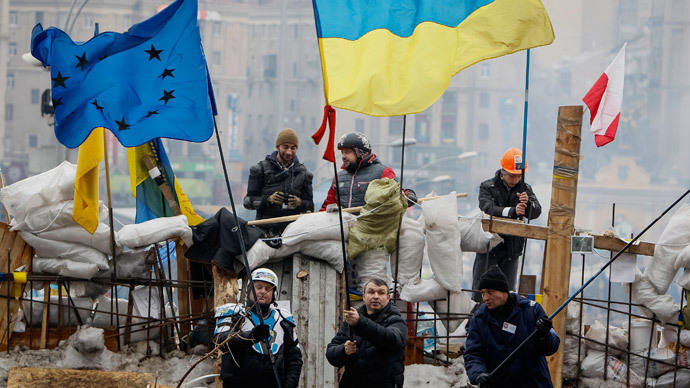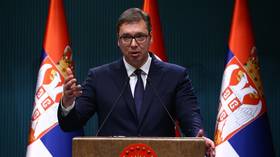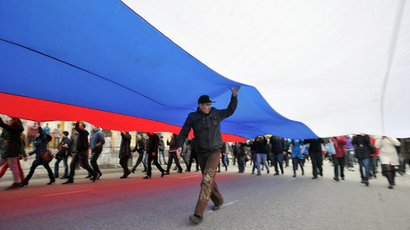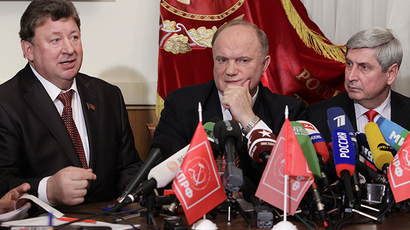EU, US ‘ideological sowing’ behind current Ukrainian crisis – Russian official

The Western nations have spent a tremendous amount of time and effort in influencing Ukrainian society and leading it to the present situation, believes Konstantin Kosachev, the head of Russia’s federal agency for foreign cooperation.
Rossotrudnichestvo has been doing everything it can to maintain Russian cultural influence in Ukraine, but the European Union and the United States have incomparably greater resources, Kosachev said in an interview with the business daily Vedomosti (Rossotrudnishestvo is the federal body in charge of humanitarian cooperation and the welfare of the Russian Diaspora within the Foreign Ministry).
The Russian side has worked to maintain the existing level of its cultural presence – it organized events promoting Russian language, helped Ukrainian students study in Russian universities, organized exhibitions, concerts and other events, Kosachev said in the interview.
“But all this cannot be compared to the long and pre-planned campaign executed in Ukraine by the European Union and the United States in which they made important addresses, including those concerning ideology – directly targeting the community, the Ukrainian mass media and non-government organizations, expert groups and younger people. Communication with the state authorities or business circles was significantly smaller,” the Russian official noted. “They spent gigantic resources on this massive ideological sowing resulting in powerful shoots in the form of the ‘Euromaidan’ [violent riots in the Ukrainian capital that started after the authorities scrapped the plan to sign an association agreement with the EU],” Kosachev said.
The head of the Foreign Cooperation Agency noted that in order to keep up and compensate for the damages Russia must launch a major refurbishment in its work with the public, not only in Ukraine, but in all former Soviet republics. He added that the Foreign Ministry had already addressed Russia’s leaders with a plan allowing for a future breakthrough. Its main point is that Russia should not rely solely on diplomats and other officials in maintaining friendly relations with neighbors, but should make this a mission for the community as a whole.
“Russia’s soft power is only getting into full flavor when the information about us is not presented through the mirror of the press or explanations of dishonest expositors and also not by ourselves, but instead by ordinary people and our partners abroad,” Kosachev told the newspaper.
The official elaborated that in the case of Ukraine, the benefits of EU association were presented not by Brussels bureaucrats, but by Ukrainian activists on Independence Square.
“Ukrainians themselves were explaining the attractiveness of this project to each other, while our projects, our hopes and intentions were presented by us alone,” Kosachev noted.
The Russian parliament has repeatedly blasted the involvement of foreign officials and politicians into internal affairs of Ukraine. When the events took a violent turn in the beginning of this year, both the lower and upper houses passed addresses to foreign colleagues asking them not to interfere in the crisis and warning of dire consequences for the Ukrainian state and its people.














